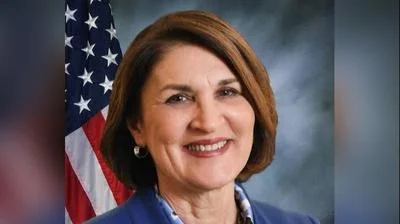The Illinois Council of Aging met June 21 to provide department updates.
Here are the meeting's minutes, as provided by the council:
The Illinois Department on Aging "works to improve the quality of life for Illinois’ older citizens by helping them live independently in their own homes and communities."
Community Care Program Advisory Committee Minutes 10:00 a.m., Tuesday, June 21, 2016 Agriculture Auditorium, Springfield
Members in Attendance: Cheryl Aguirre (for Susan Simmons) Help at Home; Robert Childers, Williamson County Programs on Aging; Diane Drew, CHELP, Stephanie Garrigan, Phillips Lifeline; Terri Harkin, SEIU; Lori Hendren, AARP; LaShun James, Addus Homecare; Mary Killough, Gareda, LLC; Greg Kyrouac, SIU School of Medicine; Kristin Murphy, IlliniCare Health; Marta Pereyra, CLESE; Robert Spaulding, Healthcare Plus Senior Care; Jane Stansell, Adults Over 60; Robert Thieman, IACCPHP; Kathy Woodworth, Healthcom Inc.; Jeanice Yancik (for Debbie Baldauff)
Illinois Department on Aging: Director Jean Bohnhoff, Desirey Ackerman, Lori Brannan, Janet Dobrinsky, Jose Jimenez, Matt Ryan, Mary Gilman, Jody Martin, Lora McCurdy, Becky Ward, Cindy Busher-Hallam
By telephone: David Lukens, VRI; Joanne Glenn, Comprehensive Quality Care Inc. Foundation; Dan Healy, Aetna; Carol Aronson, Shawnee Health Service; Barbara Wylie, Illinois Association of Nutrition Programs; Jennifer Chehlela, DuPage County Senior Services; Ella Grays, Gareda Home Care; Mary Lee Tomsa, DuPage County Senior Services; Dave Lowitzki, Lowitzki Consulting; Aleksandra Zaborowska, Home Life Healthcare; Tracy Barczewski, Midland Area Agency on Aging; Cary Crawford, Chicago Commons; Lubertha Mercer, HCI; Amy Brown, CRIS Healthy- Aging Center; Bahnavi Bavisi, Universal Industries/Universal Metro Asian Services; Barbara Rabyne, CJE SeniorLife; Lori Long, Chinese Mutual Aid Association; Tom Gonzalez, ADT; Peter Valessares, Hellenic Foundation; Marta Cerda, ASI; Theresa Collins, Senior Services Plus; Alex Burke, IDoA; Veronica Vera, IDoA
Guests: Carolyn Bates, Molina; Amy Marchant Brown, CRIS Healthy Aging; Betty Degroot, Cass County Mental Health; Melissa Edie, CCSI; Becky Gillen, Macon County Health Department; Awilda Gonzalez, Universal Industries; Ryan Gruenenfelder, AARP; Jean Jones, Cass County Mental Health; Marsha Johnson, CCSI/CCU; Richard Juarez, Lawndale Christian; Lisa Kracht, ECCOA; Kristin McCracken, AMAC; Tonia Oberg, ECCOA; Marsha Nelson, Shawnee Alliance; Cari Outman, Molina Health Care; Gustavo Saberbein, ABCOR; Tania Schwer, Grundy County Health Department; Bill Wheeler, ICCCU
Welcome and Introductions:
The meeting was called to order at 10:20 a.m. by Jose Jimenez and roll call was taken.
Jose asked for the April 27th meeting minutes to be approved. Marta Pereyra made the motion, seconded by Robert Childers, and minutes were approved.
Jose asked if there was anyone who wanted to speak as part of the Public Comment portion of the meeting.
Public Comments:
Bob Thieman had questions regarding the Medicaid spend-down under the Community Reinvestment Program (CRP), whether there has been evaluation of the EVV program, the Chicago minimum wage and if there were updates regarding the revised CCP manual. Bob commented the recent CRP meeting was by invitation only and he thought there should be a CRP meeting that included CCPAC members. Bob asked also asked about service cost maximums and AAAs facilitating CRP.
Mary Killough asked if the Department had any information regarding the I4A letter and if there was a possible vote.
Lori Hendren asked if three (3) area agencies were to close, what would be the alternate plan?
Sub-Committee Updates:
Kathy Woodworth provided a UAT Sub-Committee update that included the following: the draft initial screen tool was sent to committee for review and the committee reviewed the screen tool and created a list of questions and concerns of flow and questions at point of entry. She indicated that there was discussion regarding some things offices currently use as a trigger for just an answer, not an assessment – pre questions. Kathy asked for the members to submit volunteers and/or staff to be on a list to make test calls for testing purposes, and some were submitted. The comments and questions were compiled and the members will be going over those. Kristin Murphy mentioned the MCO Mapping component and that they were working with Lewin group.
Jose indicated the Quality Assurance Subcommittee would have an update at a future meeting. He mentioned the members will be meeting to discuss the new draft Marketing Policy.
Department Updates:
Director Bohnhoff indicated that she and the executive staff were going to answer questions that Bob Thieman submitted to the Department.
Deputy Director, Jennifer Reif mentioned executive staff has been visiting the AAAs to discuss CRP and there has been positive feedback. The staff continuously takes feedback for revisions to the CRP rules and/or questions to the network. A CRP Rules’ meeting was held at the Department with people from the network, which also produced lots of questions which were being still being reviewed and Jennifer indicated the answers would be sent out in phases; it is anticipated that there would be a set of answers sent out this week. Medicaid spend-down question under CRP: DoA will be working with HFS and include core services in Medicaid.
Jennifer indicated service cost maximums in that it is an ongoing fluid process and DoA staff were still looking for comments and feedback and working with the Governor’s office to figure out some of the issues and questions.
Lori Hendren asked if there were going to be any other CRP meetings or open forums with seniors or others. Jose mentioned there was the State Plan and that CRP was included in the plan and there were three (3) open forums. The Department also met with ACL and as a result, there are revisions being made before the State Plan is finalized. Lori asked a follow up question about how many meetings had there been with AAAs, CCUs, and providers vs. meetings for seniors. Director Bohnhoff indicated she had been in this business for 30+ years and it had been her experience that the process for new initiatives generally starts with the draft of a plan, have forum meetings to obtain feedback. The feedback is then taken into consideration for revisions.
Director mentioned that she and the Deputy Director attended a Conference on Aging in Iowa and CRP was discussed. Many states were glad Illinois was getting on board to offer a program that includes more than the three (3) core services. Florida and Nevada mentioned they were enlightened by the program. The Director also mentioned she has received a number of calls from older adults who need help. An assessment would be done and they would be sent through the process; unfortunately some would call and say they don’t need those three (3) services. It was also mentioned there were minimal comments regarding the State Plan.
Lori Hendren made the comment that it would be advantageous to explain CRP to the seniors who are going to be receiving the services so they would know about the services and the flexibility. She encouraged the Department to be broad in the audience when presenting the information.
Jennifer indicated the Department will be reaching out to seniors as they move along with CRP, as CRP is an expansive program and will be a program to enhance lives rather than a be a drastic change. The Department hopes the CCUs, AAAs and providers will be spokespeople for the Department.
Lori indicated she thinks there’s a different conversation from people receiving the services. Matt mentioned that he is anxious for the Department to present the expansive services that can be offered with CRP.
Carol Aronson commented on the comprehensive assessment process and indicated there are times when the case manager finds ways to provide other needs than core needs (ie. home modification, medication management) in addition to core needs. Matt indicated CRP should empower providers to have the expansive resources to address the needs of older adults and that CRP would not be replacing core services but rather make it more person centered. He also indicated that currently, funding and resources to pay for extra services are hard to obtain.
Mary Killough mentioned that for some, there were problems with accessibility to the forums for the State Plan and that people impacted the most deserved some time to receive the information and offer responses. She offered a suggestion that maybe a mailing to make people aware of what is in the works would give them an opportunity to be heard. Mary also mentioned that providers and CCUs communicate with seniors on a regular basis and it is difficult for them to provide answers to seniors because they don’t fully understand the CPR program.
Teri Harkin mentioned that a $200 million cut to a program will affect many seniors that obtain services and is concerned about how all who currently receive services could receive services with that large of a cut in a budget. She offered the suggestion of amending the Federal waiver to offer flexible services.
Matt indicated there may be cost reduction services that could come through outside funding that would give older adults other funding options. Matt mentioned the Department has done some demographic studies regarding and there are a lot of people who have a DON score on the lower end, don’t need a homemaker to do everything and may be more in need of home modifications and medication management would be more beneficial for them. The Nursing Home Deflection program indicated the need for innovative technology and that home modifications are the number one service requested by older adults. It is a lengthy process to add to the waiver services and CRP offers flexibility and will provide data to make waiver changes.
Lora indicated the DORS waiver includes assistive technology and home modification services; however, one has to be Medicaid eligible to receive those services. CRP will provide data that will allow us to look at other services to add to waiver services.
Ella wondered if the Department would be visiting Chicago or other areas in the state to discuss CRP. Jose indicated he attended the State Plan forum in Marion, Area 1 and that meeting provided a call in option and time has been provided since the State Plan was distributed for the public to provide written comments. He indicated this was the third time that CRP has been on the CCPAC agenda and there are individuals over the age of 60 who are able to attend. The Department has bi-weekly calls with AAAs and answers questions at ICCCU meetings.
Chief Financial Officer Report (Sarah Harris) The Governor’s office has been in meetings about the budget. Part of the discussion included SB 2038 regarding limitations and there is a section regarding the way monies are spent on operations, limited to scope and if the bill is signed, operations lines will not be considered expenditures or approved by the Governor’s office. The appropriations bill does have expenditure and budget limitations. HB 6585 was crafted as a companion bill to the appropriations bill and includes $189 million for CCP, but doesn’t account for $27 mil for non- Medicaid CCP. The Governor’s office is reviewing the consent decrees to determine if they can be extended to pay for Medicaid.
Kevin Cosgrove mentioned the president of his company is asking questions and would like something in writing about where Illinois’ budget is going. Sarah indicated we are waiting to hear back from the Governor’s office.
Bob Spaulding asked about the consent decrees and if the SB or HB could be signed if other isn’t? Sarah indicated they should be signed together.
Sarah indicated she would draft some budget bullet points to send to the network.
Mary Killough inquired about the GRF portion of the budget and the outstanding bills from FY16. Sarah indicated that discussions were in progress.
Legislative Report (Alex Burke) Alex Burke indicated that House Session was cancelled for tomorrow and the Senate was not scheduled.
Kathy Woodworth asked about legislative bills. Alex indicated the SB had to be signed by mid- July and the HB had not been presented.
Alex indicated the IDoA website includes legislative updates and new information would be posted. Jose indicated he would send updates via email.
Planning Report (Lora McCurdy) Lora addressed Bob Thieman’s question regarding waiver rates and the comparison with other states. The Department has been in discussions with Federal CMS regarding waiver rates. The Feds are reviewing all waivers and rates and asking for clarification for the rate-making process for rebasing waiver rates. It is a Federal requirement to rebase the waiver rates every five (5) years. The Department has committed to a rate study over the next three (3) years and wants to make sure the rates are sufficient to attract enough providers. Lora indicated the first rate study will be EHRS, followed by ADS and in-home studies. The Department will also do some comparisons with other states to make sure that the qualifications and services in other states are comparable.
Mary Killough inquired about regional rates based on the minimum wages in diff parts of Illinois, as current rate methodology is not regional, but rather based on state. She commented that she feels home care rates and wages are an immediate crisis situation.
Matt indicated the way the rate increases have been handled have been across the state. However, the Department will have to review possible ideas about rates in different areas.
Currently the focus is on the budget crisis. Matt mentioned the Department will have to try to find a ways to ease the financial burdens of the providers.
Jose mentioned the waiver had not yet been renewed; therefore, we would have to wait until it is renewed to proceed with amendments, etc.
Lora indicated the Department could consider a cost study and invited recommendations and/or feedback for the study.
Teri Harkin mentioned there had not been a rate increase for six (6) years, which has been the cause of a lot of turnover and employment problems. She also asked if the Department was utilizing the maximum possibility of Medicaid participants.
Lora mentioned there have been over 1000 names of Medicaid participants who have redes due and the lists were sent out to the CCUs. HFS will be providing lists in an attempt to get more participants on and continued with Medicaid. Lora indicated the Department is working with Federal CMS regarding the required information for Medicaid redes.
A question was asked about the Medicaid PowerPoint presentation titled, Applications and Redeterminations” that was recorded on April 30th, and it was indicated the presentation is available on eCCPIS. DHS has indicated the ABE systems are being updated. Lora indicated there would be more training, etc.
Home and Community Based Services (Jose Jimenez) Jose reported West Suburban Senior Services’ contract would be ending and beginning July 1, Solutions for Care and Aging Care Connections would be taking on those participants. Bob asked how seniors were being notified about West Suburban and Jose indicated there is a plan for the CCUs to communicate with the seniors.
Jose addressed the Federal waiver and performance metrics. CCUs are being ranked for performance on redeterminations, POSMs, etc. He also mentioned that low ranking CCU performers have been contacted by the Department to improve compliance with the performance metrics. The Department considers a CCU with more than two (2) quarters to be a low ranking performer and will contact them and take steps for improvement.
There is a new CCP Marketing Policy coming in the near future that will provide regulations about solicitation and unethical practices. The Department is especially interested in compliance from the network with the closures, transfers and budget issues. There will be two (2) recorded PowerPoint presentations, one for CCUs and supervisors and one for HCAs. Also address the policy itself. This will be a mandatory training and all HCAs will be required to sign acknowledgement letters to be placed in their personnel files. CCUs will also be required to sign a letter indicating compliance with the marketing policy.
Lora reminded everyone in the meeting that one focus of the marketing policy is that participants be given the freedom of choice, as it is a federal requirement. The QA subcommittee will be reviewing the marketing policy.
Jose indicated there are some providers who have been contacted regarding reported behaviors to the Department. He noted that if someone wishes to report an unethical behavior, the Department needs specific information sent in a complaint. There will be a timeline issued for all CCUs and staff to obtain compliance of the policy.
A question was asked about MCOs and the marketing compliance. MCOs are regulated by HFS. Kristin McCracken provided information regarding the process of MCO placement and that it included freedom of choice.
The Department is currently assessing the training needs and issues for providers and CCUs. There is also a concern about the provider training level and the Department wants to make sure all training is acceptable and follows certain guidelines. The QA subcommittee will address some of the upcoming training issues. Lora mentioned the training needs to be relevant to the onsite reviews and the compliance of the providers.
Mary Gilman mentioned that the Department has a report that indicated there are $11 million in billing rejects. One of the main reasons for so many rejects this year is in regards to the new provider contract numbers on eCCPIS that create reject codes P374, P375 and P376. The Department will be working with Shawnee IT, CCUs and providers to try to clear billing rejects prior to the end of the fiscal year. Billing rejects affect future budgets.
The meeting adjourned at 2:00 and the Sub-Committees convened.






 Alerts Sign-up
Alerts Sign-up